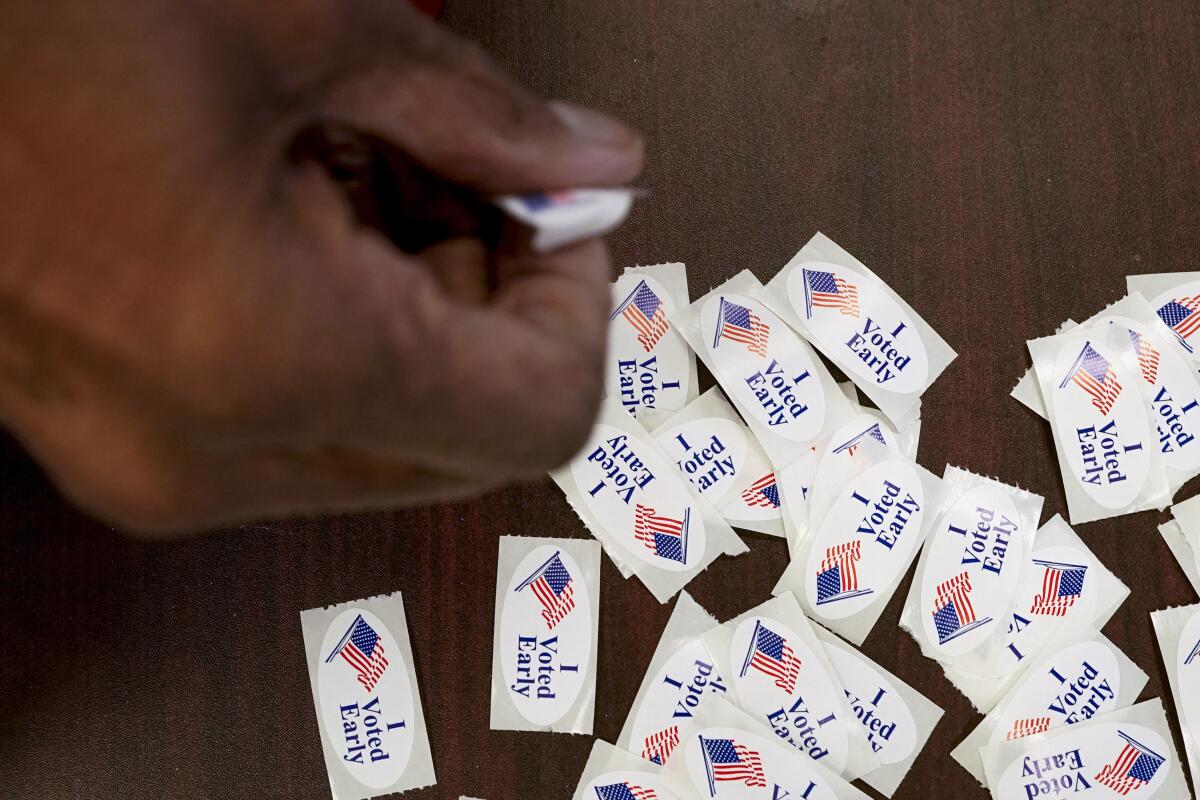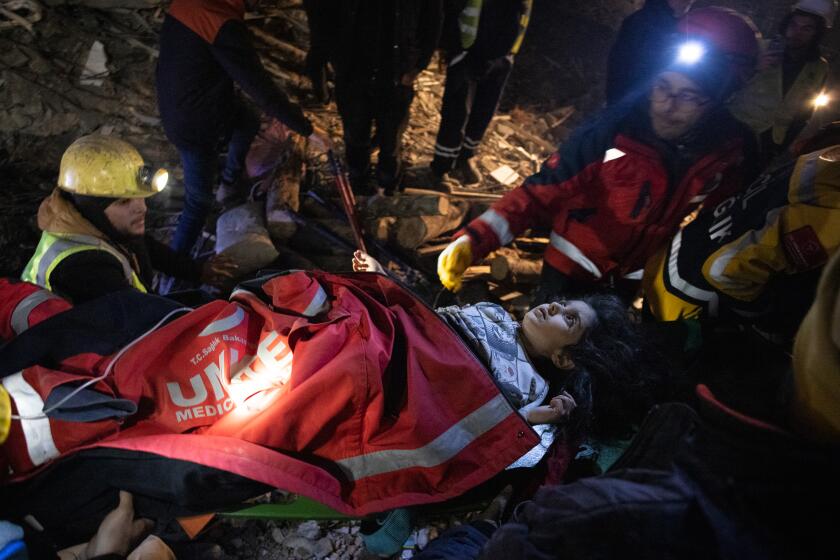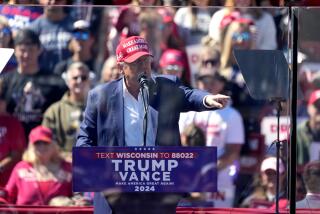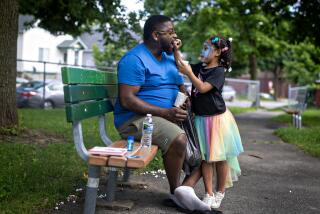GOP election tactics no surprise to Wisconsin’s Black voters

MILWAUKEE — Recent revelations about Republican election strategies targeting minority communities in Wisconsin’s biggest city came as no surprise to many Black voters.
A Wisconsin election commissioner bragged about low turnout in predominantly Black and Latino neighborhoods during last year’s elections. Weeks later, an audio recording surfaced that showed then-President Trump’s Wisconsin campaign team laughing behind closed doors about efforts to reach Black voters in 2020.
Many people who voted this past week in the state’s primary election said they had long felt targeted by Republicans. The difference now is the public display of strategies that at best ignore the priorities of Black voters and at worst actively look to keep them from voting.
“It’s a plan that they devised and carried out with quite a lot of precision,” said lifelong Milwaukee resident Dewayne Walls, 63. “It’s a repeatable pattern that’s going to continue to happen over and over as long as they have that plausible deniability and as long as they have the power in Madison” — the state capital.
In the days since the magnitude 7.8 earthquake struck Turkey, search-and-rescue teams, including one from Los Angeles County, have been a ubiquitous presence.
Walls and other Black voters said they are tired of the countless hurdles that disproportionately try to keep them from being heard at the ballot box. Voters said their experiences with the GOP have been as voices to silence, not to win over.
“The Republican Party needs a lot of work. All of them need to actually step into our shoes, go in our neighborhoods, work our jobs, do the things that we’re doing on a daily basis and see how they feel about what’s going on once they experience it,” said Valeria Gray, 59.
She described the relationship between Milwaukee and much of the rest of the state as one divided by race.
“It doesn’t look like it’s gonna ever go anywhere,” she said.
Voting rights advocates for years have accused Wisconsin Republicans of pushing policies to suppress voters of color and lower-income voters. Many such policies centered on the Democratic stronghold of Milwaukee, home to nearly 70% of Wisconsin’s Black population.
Those claims were reinforced by an email sent to about 1,700 people in December from Bob Spindell, a Republican member of the Wisconsin Election Commission. He said Republicans “can be especially proud” of depressed midterm voter turnout in predominantly Black and Latino neighborhoods in Milwaukee, a heavily Democratic city.
Spindell later said his email was meant to convey the steps Republicans took to counter Democratic messaging in the city.
The Associated Press then obtained an audio recording of a meeting in which the head of Trump’s 2020 Wisconsin campaign team talked with staff about their efforts to reach Black voters: “We ever talk to Black people before? I don’t think so,” the campaign official said to laughter.
Dwayne Morgan, 59, called it “the same old, same old” for the GOP in Milwaukee. “They’re trying to get us not to vote. They’re trying to wipe away the history,” he said.
Republican-drawn legislative maps adopted last year dilute Milwaukee’s influence and nearly guarantee a Republican majority in the Legislature. That’s despite statewide races routinely being decided by narrow margins and Democrats winning the major statewide offices, including for governor, attorney general and secretary of state.
The Republican-controlled Legislature enacted strict voter ID laws in 2011 under then-Gov. Scott Walker, a Republican. Since his first term began in 2019, Democratic Gov. Tony Evers has vetoed more than a dozen GOP-backed bills that would make it harder to vote. Those include ID requirements for older and disabled voters who are indefinitely confined, limits on when and where absentee ballots could be collected, and prohibiting election officials from filling out missing voter information.
Nonetheless, Republicans have prevailed in the courts, using lawsuits to outlaw ballot drop boxes and deny election clerks the ability to fill in missing information on the envelopes containing mail ballots. The Wisconsin Supreme Court’s conservative majority, which is at stake in this year’s election, has routinely ruled in favor of Republicans on consequential voting decisions.
That adds to a host of reasons Black voters in Milwaukee have increasingly felt as if their votes don’t matter. The city has some of the worst racial disparities nationwide in healthcare, education, wealth and incarceration.
Low-income residents, who are disproportionately Black, already struggle to meet basic needs. Confusion over new election rules or limited options for when and where they can vote further discourage voting, said the Rev. Greg Lewis, founder of Souls to the Polls Milwaukee.
“Suppression is not just a few things,” he said. “It’s not just not being able to vote without IDs. It’s not just not being able to take your ballots to the drop box. It’s not just language barriers. It’s all those things together.”
For Barbara Bryant, 76, “all the extra steps” were the biggest barrier to voting. But she wasn’t going to be deterred from participating in this month’s primary. This past week, amid a snowstorm, a poll worker helped her from her car and into an early voting location.
Bryant said she has preferred voting early in recent years so poll workers have time to explain any new rules, but she has seen inaccessible voting sites and the removal of drop boxes discourage other older adults from voting.
Wisconsin Republicans told the AP they have been trying for a decade to make inroads with Black and Latino voters in Milwaukee.
The state party opened its first office in downtown Milwaukee in 2019, specifically with the goal of reaching out to Black voters. The focus is on engaging them in conversation, rather than meeting typical campaign metrics such as knocking on a certain number of doors, said Mark Jefferson, the state GOP executive director.
He said the party is not trying to suppress votes, but to chip away at the support for Democrats in those communities.
“People are listening when they haven’t before,” Jefferson said. “I think we’ve learned a lot. I think we are cutting into Democrats’ margins, albeit faster currently in the Latino community and the Hispanic communities. But we’re also cutting into margins on the north side of Milwaukee, as well. And that’s because we are more in touch than we were.”
Angela Lang, executive director of Milwaukee-based Black Leaders Organizing Communities, wasn’t worried about Republicans gaining a foothold with Black voters. She said the GOP’s priorities are fundamentally at odds with what most Black voters in Milwaukee want.
But Lang said she was concerned about the precedent that could be set by Republicans so openly talking about strategies to lower turnout.
“It’s incredibly dangerous, because when one starts, then people just feel more emboldened,” she said.
Several Black voters interviewed at the polls said they had seen little activity from Republicans in the city and described the GOP outreach center as more of a showpiece for the party.
“I don’t think they ever come down here to try to reach us at all,” said voter Damario Wright, 36. “I mean, you barely see a Republican in Milwaukee — come on, now.”
More to Read
Sign up for Essential California
The most important California stories and recommendations in your inbox every morning.
You may occasionally receive promotional content from the Los Angeles Times.











